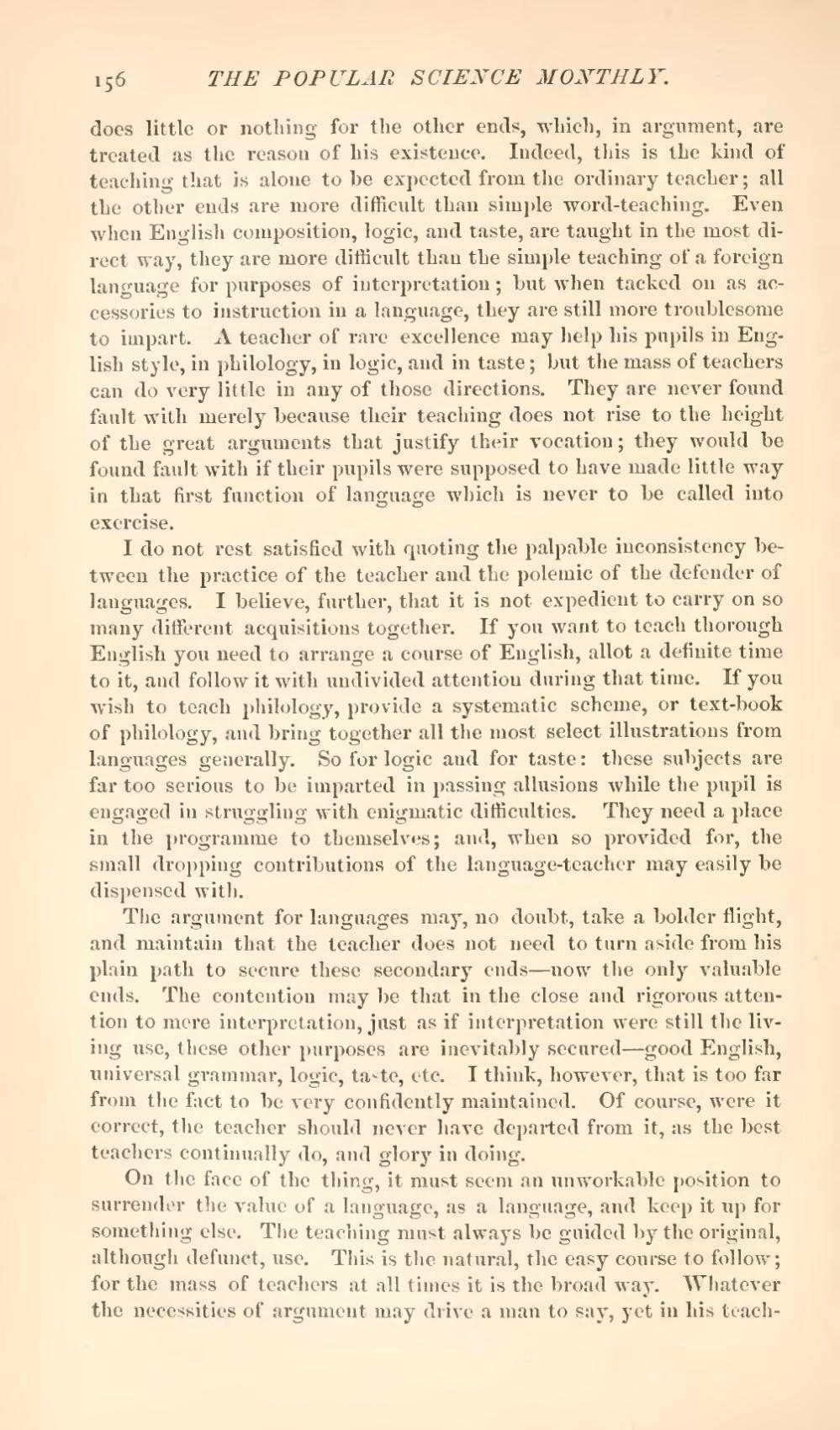does little or nothing for the other ends, which, in argument, are treated as the reason of his existence. Indeed, this is the kind of teaching that is alone to be expected from the ordinary teacher; all the other ends are more difficult than simple word-teaching. Even when English composition, logic, and taste, are taught in the most direct way, they are more difficult than the simple teaching of a foreign language for purposes of interpretation; but when tacked on as accessories to instruction in a language, they are still more troublesome to impart. A teacher of rare excellence may help his pupils in English style, in philology, in logic, and in taste; but the mass of teachers can do very little in any of those directions. They are never found fault with merely because their teaching does not rise to the height of the great arguments that justify their vocation; they would be found fault with if their pupils were supposed to have made little way in that first function of language which is never to be called into exercise.
I do not rest satisfied with quoting the palpable inconsistency between the practice of the teacher and the polemic of the defender of languages. I believe, further, that it is not expedient to carry on so many different acquisitions together. If you want to teach thorough English you need to arrange a course of English, allot a definite time to it, and follow it with undivided attention during that time. If you wish to teach philology, provide a systematic scheme, or text-book of philology, and bring together all the most select illustrations from languages generally. So for logic and for taste: these subjects are far too serious to be imparted in passing allusions while the pupil is engaged in struggling with enigmatic difficulties. They need a place in the programme to themselves; and, when so provided for, the small dropping contributions of the language-teacher may easily be dispensed with.
The argument for languages may, no doubt, take a bolder flight, and maintain that the teacher does not need to turn aside from his plain path to secure these secondary ends—now the only valuable ends. The contention may be that in the close and rigorous attention to mere interpretation, just as if interpretation were still the living use, these other purposes are inevitably secured—good English, universal grammar, logic, taste, etc. I think, however, that is too far from the fact to be very confidently maintained. Of course, were it correct, the teacher should never have departed from it, as the best teachers continually do, and glory in doing.
On the face of the thing, it must seem an unworkable position to surrender the value of a language, as a language, and keep it up for something else. The teaching must always be guided by the original, although defunct, use. This is the natural, the easy course to follow; for the mass of teachers at all times it is the broad way. Whatever the necessities of argument may drive a man to say, yet in his teach-
